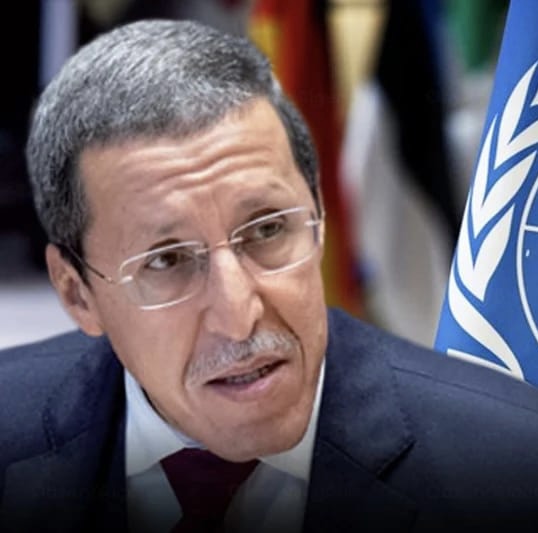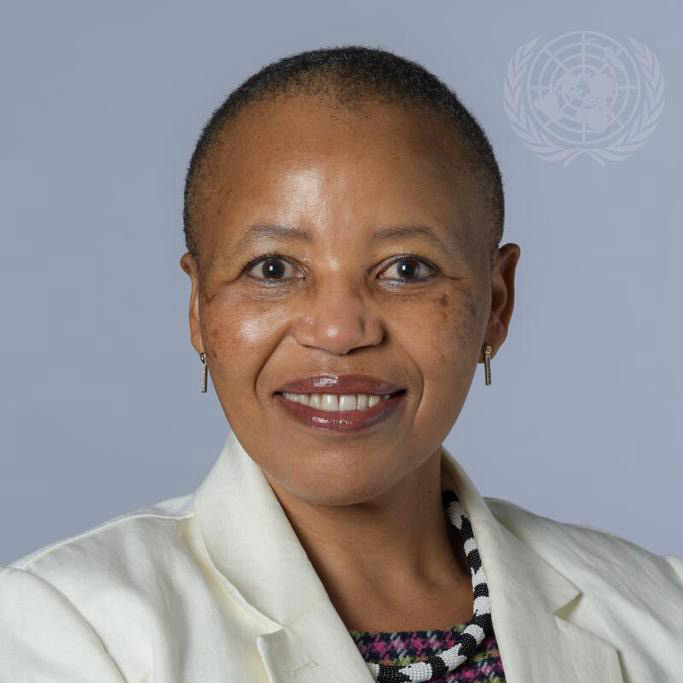Background
The Coalition on Science, Technology, and Innovation for Africa’s Development (the Coalition) was launched on May 2nd, 2023, in New York during the first STI in Africa Day that was held on the margin of the 8th Science Technology and Innovation Forum. The Coalition responds to aspirations of the African Agenda 2063 of the African Union and its science, technology, and innovation strategy for Africa 2024 (STISA-2024) and the Technology Facilitation Mechanism established by the 2030 Agenda for Sustainable Development to support the application of science, technology, and innovation (STI). The Technology Facilitation Mechanism aims to enhance North-South, South-South, and triangular regional and international cooperation, on and for access to, STI and improve knowledge sharing on mutually agreed terms, including through improved coordination among existing mechanisms.
The main objectives of the Coalition are to:
A) Empower Africa’s youth;
B) Enable the contribution of the African Diaspora;
C) Leverage the African Continental Free Trade Area (ACFTA); and
D) Build diversified supply and value chains for Africa’s industrial development. The Terms of Reference of the Coalition are available here.
It was launched in May 2023 during the UN STI Africa Day, co-founded by South Africa, Ethiopia, Cameroon, Ghana, and the Kingdom of Morocco, representing the five African regions with the support of UN DESA and ECA.
Supporters of the Coalition can assist this initiative in any of the following three ways:
i) Lending their “voice of support” to the messages formulated by the Coalition;
ii) By supporting the implementation of the selected STI initiatives for SDGs as part of the STI4SDGs Roadmaps for Africa; and
(iii) By contributing to the sustained operation of the Coalition.

H.E. Ms. Mathu Joyini, Ambassador and Permanent Representative of South Africa to the United Nations, officially handed over the chairpersonship of the Coalition to H.E. Mr. Omar Hilale, Ambassador and Permanent Representative of the Kingdom of Morocco to the United Nations, Friday, 31 January 2025

H.E. Mr. Omar Hilale
Ambassador Extraordinary and Plenipotentiary of the Kingdom of Morocco to the UN, Chair of the Coalition
H.E. Ms. Mathu Joyini
Ambassador Extraordinary and Plenipotentiary of South Africa to the UN
Announcements
Please check the event here.
We're pleased to announce the availability of two letters on our website:
Letters
Background documents
Concept Notes
- 02 May. 2023: Science, Technology and Innovation in Africa Day 2023, New York, USA
- 12-13 Oct. 2023: Workshop on building capacity and scaling up adoption of STI4SDGs Roadmaps in Africa, Addis Ababa, Ethiopia
- 16-18 April 2024: ECOSOC Youth Forum 2024, New York, USA
- 19-20 April 2024: Sixth African Science, Technology and Innovation Forum, Cairo, Egypt
- 9-10 May 2024: 9th Multi-stakeholder Forum on Science, Technology and Innovation for the Sustainable Development Goals, New York, USA
- 20-22 May 2024: The Preparatory Conference of the Diaspora Region, Salvador de Bahia, Brazil
- 27-30 May 2024: 4th International Conference on Small Island Developing States (SIDS4), Antigua and Barbuda
- 18-21 June 2024: 3rd United Nations Conference on Landlocked Developing Countries (LLDC3), Kigali, Rwanda
- 08-12 July 2024: High-level Political Forum on Sustainable Development (HLPF), New York, USA
- 15-18 July 2024: High-level Segment of ECOSOC, including the three-day ministerial segment of the High-level Political Forum on Sustainable Development, convened under the auspices of the Council, New York, USA
- 25 July 2024: Organizational session regarding the programme of work of ECOSOC from July 2024 to July 2025, New York, USA
- Sept. 2024: The Summit of the Future 2024, New York, USA
- 25 June 2025: Science, Technology, and Innovation for Africa’s Development: Expert-level Capacity-Building Workshop for African Missions to the UN, Online.
European Union Delegation to the UN
International Research Centre on Big Data for SDGs
Permanent Mission of Belgium to the United Nations
Permanent Mission of the Republic of Indonesia to the United Nations
Permanent Mission of Turkiye to the United Nations
World Federation of Engineering Organizations
Africa-Europe Science Collaboration and Innovation Platform
A Fundação Oswaldo Cruz (Fiocruz)
Future Africa
Below, please find the European Commission funding & tender opportunities. Explore Horizon Europe, a research and innovation funding programme until 2027. Interested in how to get funding, programme structure, missions, European partnerships, news and events? If so, follow the Horizon Europe calls for proposals.
The programme facilitates collaboration and strengthens the impact of research and innovation in developing, supporting and implementing EU policies while tackling global challenges. It supports creating and better dispersing of excellent knowledge and technologies. Legal entities from the EU and associated countries can participate.
The planned opening date for the following calls is 06 December 2023 and the deadline date is 12 March 2024 (17:00:00 Brussels time):
HORIZON-INFRA-2024-DEV-01: Developing, consolidating and optimising the European research infrastructures landscape, maintaining global leadership (2024)
HORIZON-INFRA-2024-DEV-01-01 | Research infrastructure concept development
Projects are expected to contribute to all the following expected outcomes:
- support to planning and decision making for research infrastructures at the national (e.g. funding bodies, governments) and European level (e.g. ESFRI) through solid science cases, including expected scientific breakthrough, gap analyses and feasibility/design studies for future research infrastructures or major upgrades of existing ones;
- a better alignment of the development of the research infrastructure landscape with the advancements of excellent science, frontier research and technology innovation;
- increased performance, scientific capacity and excellence of the European research infrastructure landscape;
- new services and access opportunities available to the research community, allowing to better tackle scientific and societal challenges;
- reduction of environmental (including climate-related) impacts as well as optimisation of resource and energy consumption integrated in the very early phase of development of new research infrastructures or major upgrades of existing ones.
Project results are expected to contribute to all the following expected outcomes:
- contribution to the new Commission strategy with Africa, notably to the following specific objectives: rapidly enhance learning, knowledge and skills, research and innovation capacities (with attention to female and young researchers);
- enhanced research capacities in Africa;
- enhanced Euro-African cooperation in R&I.
Project results are expected to contribute to several of the following expected outcomes:
- better structured and strengthened European research infrastructure landscape;
- new services available to a wider user community, including participants in other parts of Horizon Europe, allowing to better tackle scientific and societal challenges;
- increased capacity to address EU policy priorities and/or support EU industry;
- reinforced global competitiveness of the European Research Area;
- reduction of environmental (including climate-related) impacts as well as optimisation of resource and energy consumption integrated through the full life cycle of research infrastructures;
- increased long-term sustainability of European research infrastructures.
HORIZON-INFRA-2024-EOSC-01: Enabling an operational, open and FAIR EOSC ecosystem (2024)
Project results are expected to contribute to all the following expected outcomes:
- Seamless interactions between EOSC, operational data spaces or environments (e.g. the DRMKC Risk Data Hub, the European Climate Adaptation Platform (Climate Adapt), relevant Copernicus Services, the GEOSS Portal, the EOSC platform, etc.), researchers and other stakeholders contributing to adaptation to climate change to store, share, access, analyse and process research data and other research digital objects from their own discipline, across research infrastructures, disciplines and national borders;
- Open and FAIR data is the new norm for research contributing to adaptation to climate change;
- EU-wide sharing of research data relevant to this area is shown to be a critical mechanism to facilitate climate adaptation across Member States and Associated Countries with involvement of the regions and local authorities;
- EOSC grows into a trusted research and innovation data space and service platform in Europe that articulates with the Green Deal data space and supports the interdisciplinary research community involved in mission climate adaptation;
- Contribute to the Horizon Europe EOSC Partnership and other relevant partnerships related to adaptation to climate change.
Project results are expected to contribute to all the following expected outcomes:
- EOSC increases the level of coordination of national and European initiatives, creating mechanisms of mutual learning, replication of best practices and joint activities. This expected outcome will be achieved mainly through financial support to third parties in the form of cascading grants;
- EOSC increases the level of coordination and directionality among EOSC-related initiatives and Horizon Europe funded actions, ensuring a more proactive and impactful approach towards attaining the SRIA objectives. This expected outcome will be achieved through targeted financial support to third parties in the form of cascading grants;
- Step forward towards a more sustainable EOSC that enables smooth transnational access to data and services, trough the test and implementation of coherent business models;
- Facilitated access to information to and from all EOSC stakeholders across countries, institutions, networks and initiatives is increasingly enabled.
Project results are expected to contribute to all the following outcomes:
- A European network of trustworthy repositories is established that will enhance the EOSC ecosystem, contribute to the consolidation of Open Science practices and support European researchers;
- The concept and requirements of trustworthy repositories are harmonised and therefore support the European funders in better addressing the Open Science provisions in their programmes;
- Data depositing ecosystem in Europe are adequately supported, providing a common voice for research digital repositories to better interact with the research and innovation policy making and to respond in a more coordinated and cohesive manner to the need of the European researchers.
Project results are expected to contribute to all the following expected outcomes:
- Practices, standards and tools for long-term preservation are mainstreamed in the EOSC ecosystem;
- The emergence of a European distributed infrastructure for long-term preservation and access is adequately supported;
- The sustainability of long-term preservation among the European scientific community is significantly enhanced.
HORIZON-INFRA-2024-EOSC-01-05 | Innovative and customizable services for EOSC Exchange
Project results are expected to contribute to all the following expected outcomes:
- Next generation EOSC provides researchers with the means to easily access complete datasets and analysis platforms and provide services that support reproducibility, as well as ensuring long-term preservation and long-term availability of these research data and tools;
- Ecosystem of novel tools and services, as many new FAIR-by-design datasets as possible, whereby researchers are able to deliver much more rapidly the outputs of each part of the research lifecycle, including data and software, with the same level of precision as they deliver publications today;
- Enhanced services and tools for researchers to lower the bar and underpin the initial research planning and preparation phase (i.e. entry phase) of the research lifecycle.
HORIZON-INFRA-2024-TECH-01: Next generation of scientific instrumentation, tools, methods, and advanced digital solutions for RIs (2024)
Project results are expected to contribute to several of the following expected outcomes:
- enhanced scientific competitiveness of European research infrastructures;
- enhanced RI capacities to address research challenges and EU policy priorities;
- foundations for the development of innovative companies;
- increased collaboration of research infrastructures with universities, research organisations and industry;
- increase of the technological level of industries through the co-development of advanced technologies for research infrastructures and creation of potential new markets;
- integration of research infrastructures into local, regional and global innovation systems and promotion of entrepreneurial culture.
Project results are expected to contribute to several of the following expected outcomes:
- enhanced RI capacities to address research challenges and EU policy priorities, in particular the green transition;
- new RI services and data related to the social aspects of green transition;
- increased support of RI services for the EU Missions and Partnerships linked to the green transition;
- harmonized data sets that are accessible and complemented by tools that facilitate the collection, analysis, and visualization of the data;
- strengthened collaborations between research infrastructures and broader stakeholders, including civil society, in addressing sustainability challenges at multiple scales.
HORIZON-INFRA-2024-TECH-01-03 | New digital twins for Destination Earth
Project results are expected to contribute to all the following expected outcomes:
- Emergence of new science-based digital twin infrastructures to be gradually integrated in Destination Earth;
- Establishment of new digital standards for software (including simulation and simulation-observation data fusion) and data for Destination Earth;
- Standards- and science-based approach for modelling, predicting and assessing the Earth systems and their socio-economic impact.
Project results are expected to contribute to all the following expected outcomes:
- Availability of advanced modelling and prediction capabilities aimed at industrial, scientific or policy end users on fundamental, complex and socio-economically relevant real-life phenomena, including consideration of the possibility to replace, where appropriate, the need for physical experiments and interventions by using digital twins;
- Enhanced competitiveness and improved effectiveness of European RIs;
- Better integration of RIs into local, regional and global innovation and decision support systems.
The Diaspora remains an often-untapped resource that can leverage talent and knowledge-sharing across STI-related fields. The Coalition seeks to engage with formal bodies and associations within the Diaspora. These synergies offer multifaceted opportunities ranging from access to a diverse pool of experts to lessons on effective linkages between the Diaspora and Africa. Using existing resources within these networks—be it financial, technological, or expertise-driven—becomes necessary in advancing the Coalition's objectives.
The Diaspora can help execute future-ready solutions to solvable problems through solution-driven strategies and mission-oriented innovation. Strategic focus areas include fintech, agritech, bioeconomy, health tech, and clean tech, aligning with nations’ priorities and ongoing initiatives in STI.
As a first step, it is proposed to call for partners for mapping Diaspora networks, associations, and similar formal bodies working in STI and STI-related fields during Q1 2024.
To be updated accordingly.


